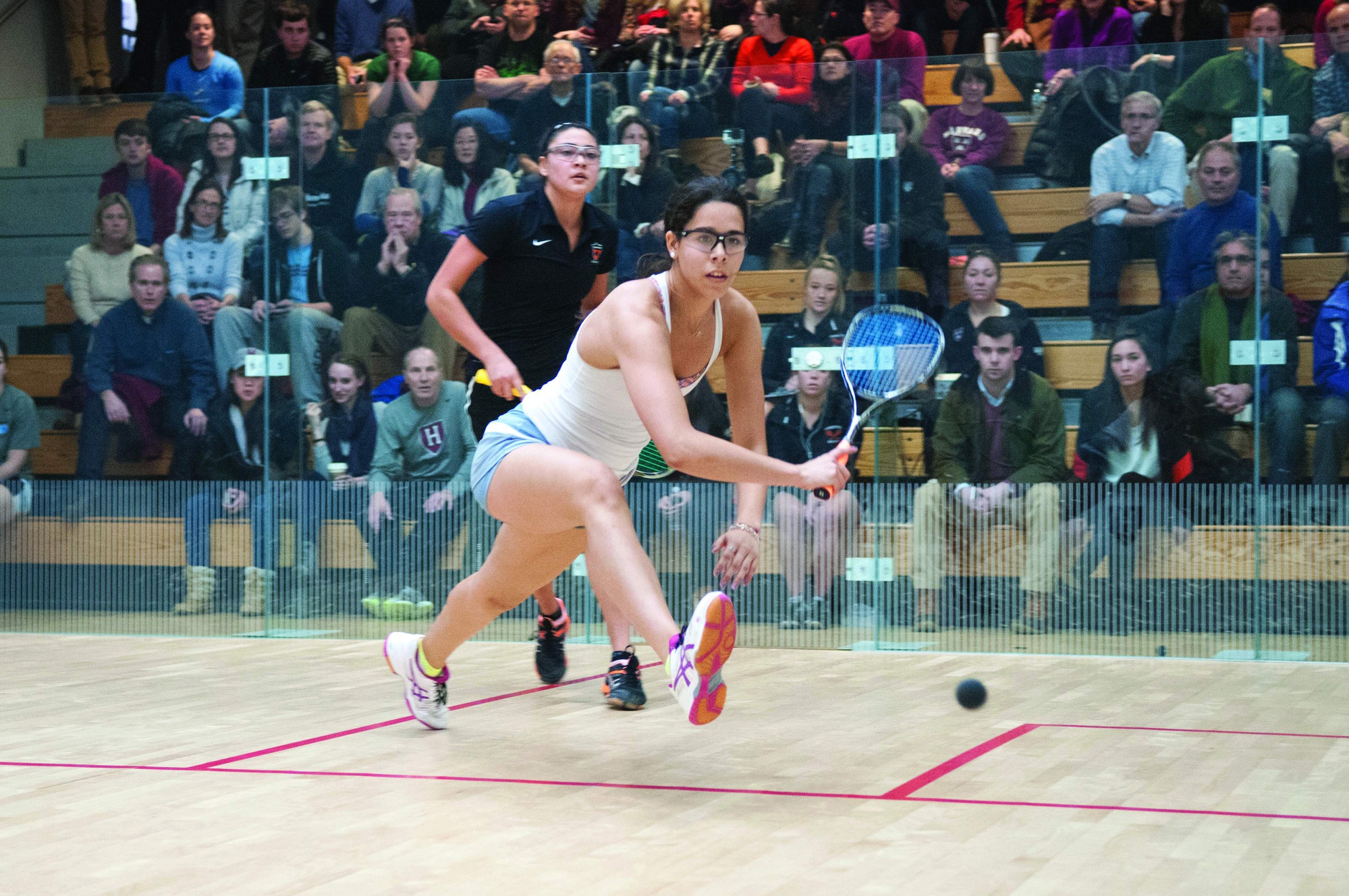
News
Harvard Quietly Resolves Anti-Palestinian Discrimination Complaint With Ed. Department

News
Following Dining Hall Crowds, Harvard College Won’t Say Whether It Tracked Wintersession Move-Ins

News
Harvard Outsources Program to Identify Descendants of Those Enslaved by University Affiliates, Lays Off Internal Staff

News
Harvard Medical School Cancels Class Session With Gazan Patients, Calling It One-Sided

News
Garber Privately Tells Faculty That Harvard Must Rethink Messaging After GOP Victory
Women's Squash Approaching All-Time Status

Two weeks ago, junior Alyssa Mehta set up a Facebook event asking for “all the support and noise that we can get!” If you had just gone to that one game, you would have thought that squash had a cult following. You would be wrong—the team doesn’t get nearly the support it deserves. But it wouldn’t be a mistake to call the team a cult of success.
It seems almost pointless to mention the team’s undefeated season, or that the Crimson is a two-time defending national champion, or that it has arguably the best woman in collegiate squash. You can’t just say that coach Mike Way led the team to victory in his first two seasons, took it easy the next year, lost just one game since—against Penn—and is looking to tie the program’s record for the most championships.
Just call Harvard good. Really, really, good. Like squash the competition good.
But let’s be more precise—how accomplished is this team? This past weekend, the men’s squash team lost 5-4 to Trinity in the national championship game. With that defeat, and probably without it, women’s squash now indisputably stands as the most high-powered Harvard program. Coincidentally, that men’s squash allowed the Trinity men to tie the Crimson women in title count.
It’s fitting that the women travel to Princeton this weekend. Harvard will attempt win three more games en route to a perfect season, which would give the program the Howe Cup for yet another year. But the Crimson has a chance to shake history in an even more momentous way.
With a win over the Tigers, the Crimson can tie Princeton for the most women’s squash titles ever—17, to be exact.
But as in most areas of history, this past is complicated.
During the 1950s and 1960s women’s squash was a niche sport, dominated by the Howe matriarchy. Margaret Howe, the mother of the clan, and her two daughters won a combined 10 national singles titles. But the family did not tire of their victories. Instead, Betty Howe Constable, as Princeton’s head coach, created a college division for her Tigers to win 10 out of the first 12 titles.
Greatness can’t be bought. For years, the rest of the world has levied that complaint against New England. The same logic applies to those Princeton titles.
So it goes that Harvard, which has built its legacy as the sport has grown more and more competitive, can be declared as its discipline’s greatest dynasty.
The operative question right now is how the team shapes up against other reigns of dominance in other sports. As a Bostonian, I have a special place in my heart reserved for number 17. Banner 17 hangs in the TD Garden to commemorate streaks of brilliance. Coincidentally the Garden is the place where Harvard men’s hockey won its first Beanpot title in 24 years. Seventeen is also the number of titles that the team most hated in the Garden holds.
I can mention the Canadians, mostly because they hold only the second-highest amount of professional championships, but my New England identity won’t allow me to talk about the team at the top.
Admittedly, comparing a non-big-four sport to pro basketball might not be justified. But in terms of recency, Harvard women’s squash deserves special mention. The team has achieved so much success in an era hostile to dynasties.
Moving onto college sports, Connecticut’s women probably has the most legitimate argument for the most dominant sports dynasty at the present.
Until the Huskies lose their first game in 2017, it’s not worth considering the Crimson women as a real competitor. But dynasties, before they are ranked, must be built. And building is what women’s squash is doing.
Even with the gleam of the recent success, the team’s future looks even brighter. Sophomore Sabrina Sobhy is the talk of the town, which highlights the team’s youth movement. Former British national team partners, freshman duo Gina Kennedy and Amelia Henley, have joined American counterparts to bolster the Crimson. Sophomore Kayley Leonard rounds out the top four, meaning that the team’s top spots are all filled by current underclassmen.
Harvard graduates four players this year, and while their departures won’t devastate the team’s play, their presence will most certainly be missed. After the first and second waves of games are finished, the team crowds around, cheering, to watch the final matches. The program isn’t rooting for another 9-0 victory but rather to move forward as a team.
As time goes on, the team seems to get stronger and stronger, writing more history along the way. The next chapter remains to be written this weekend.
—Staff writer William Quan can be reached at william.quan@thecrimson.com.
Want to keep up with breaking news? Subscribe to our email newsletter.
